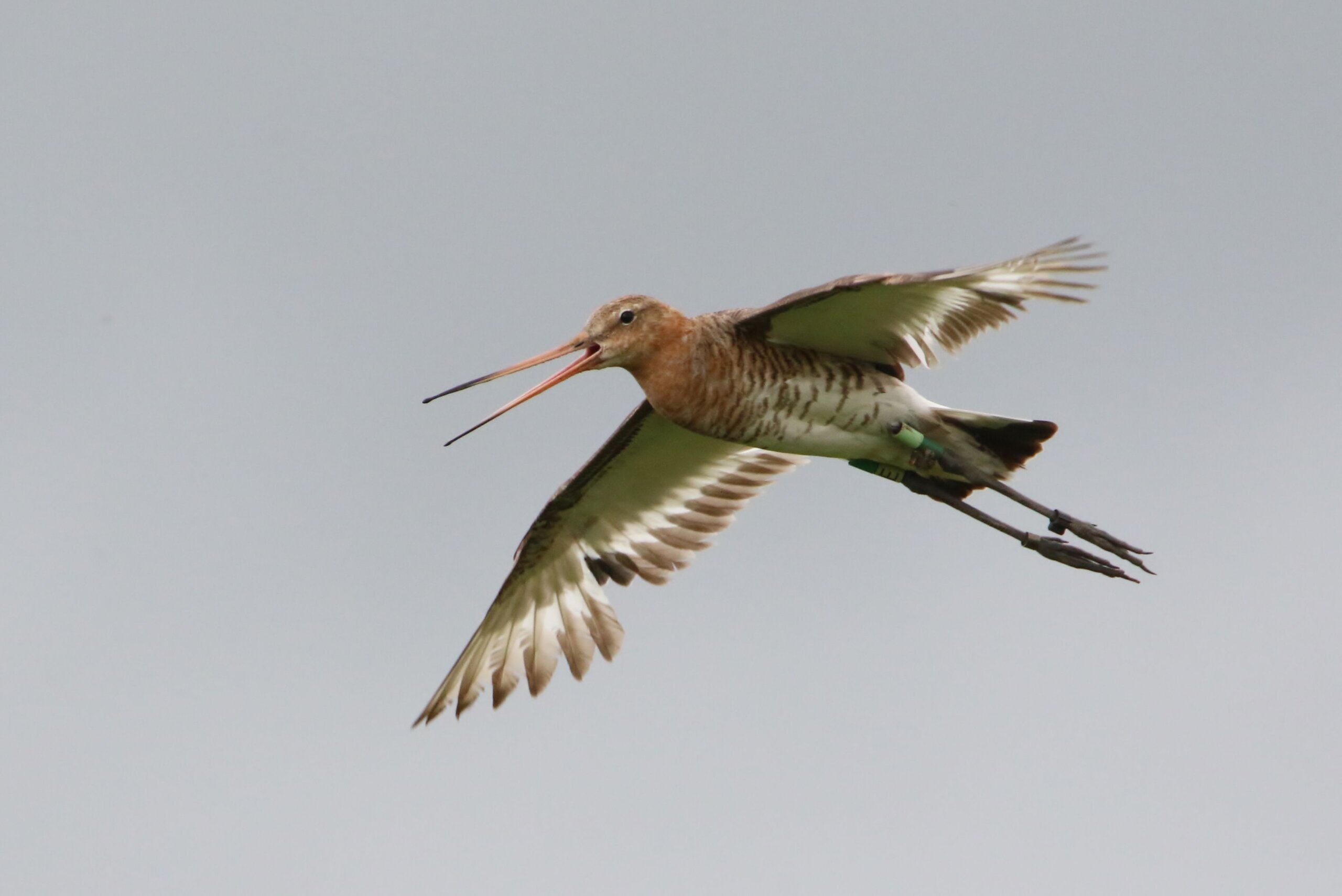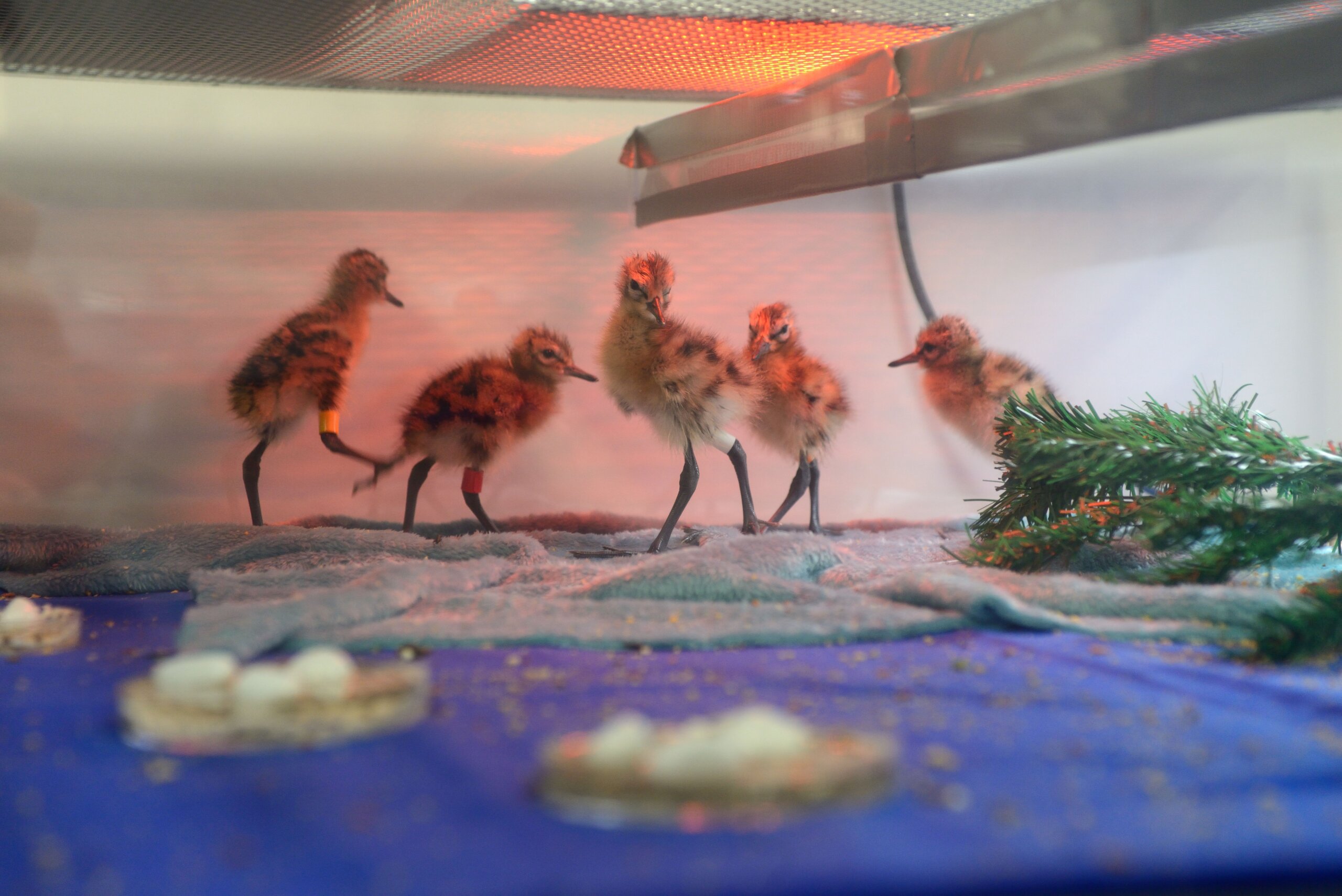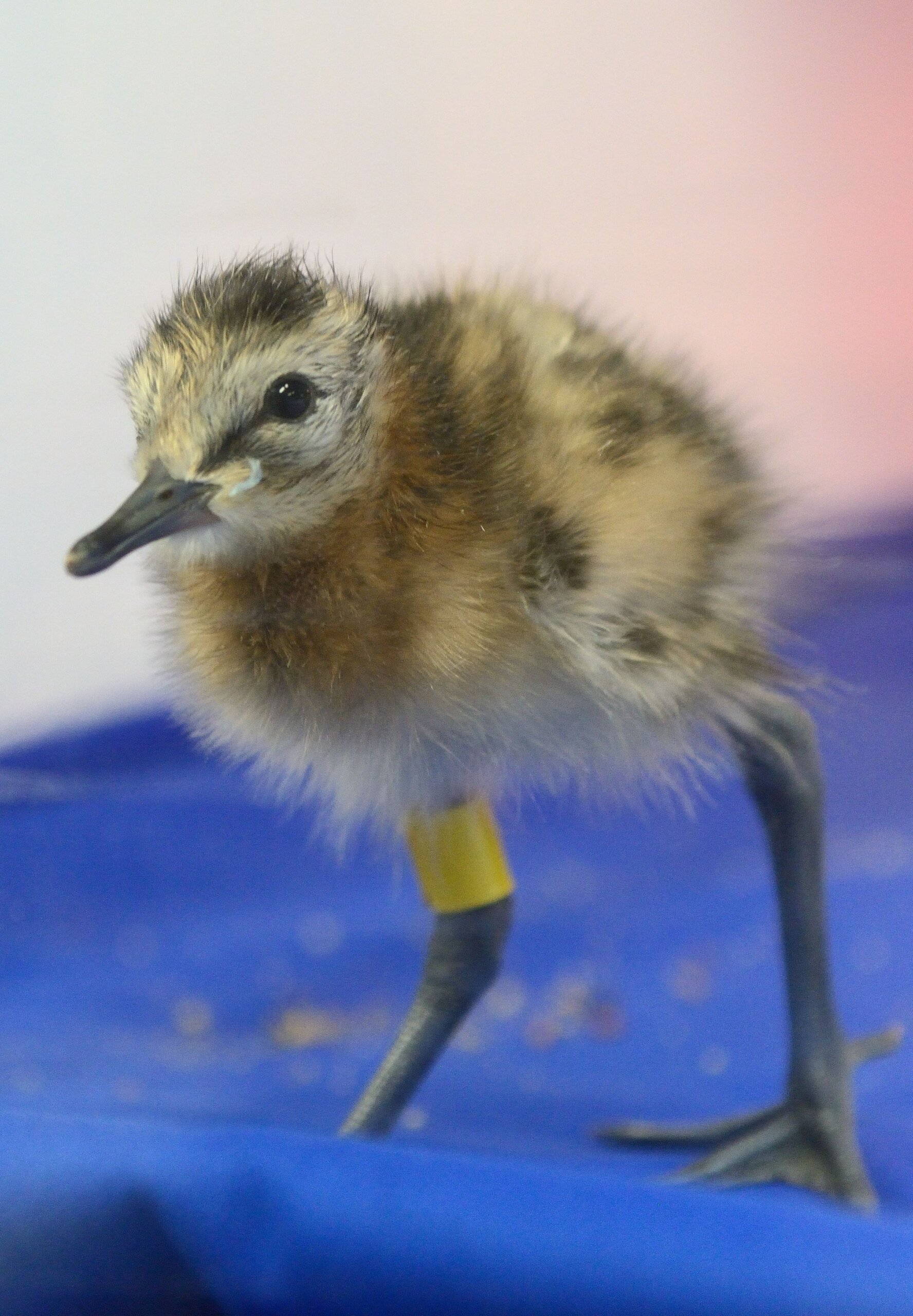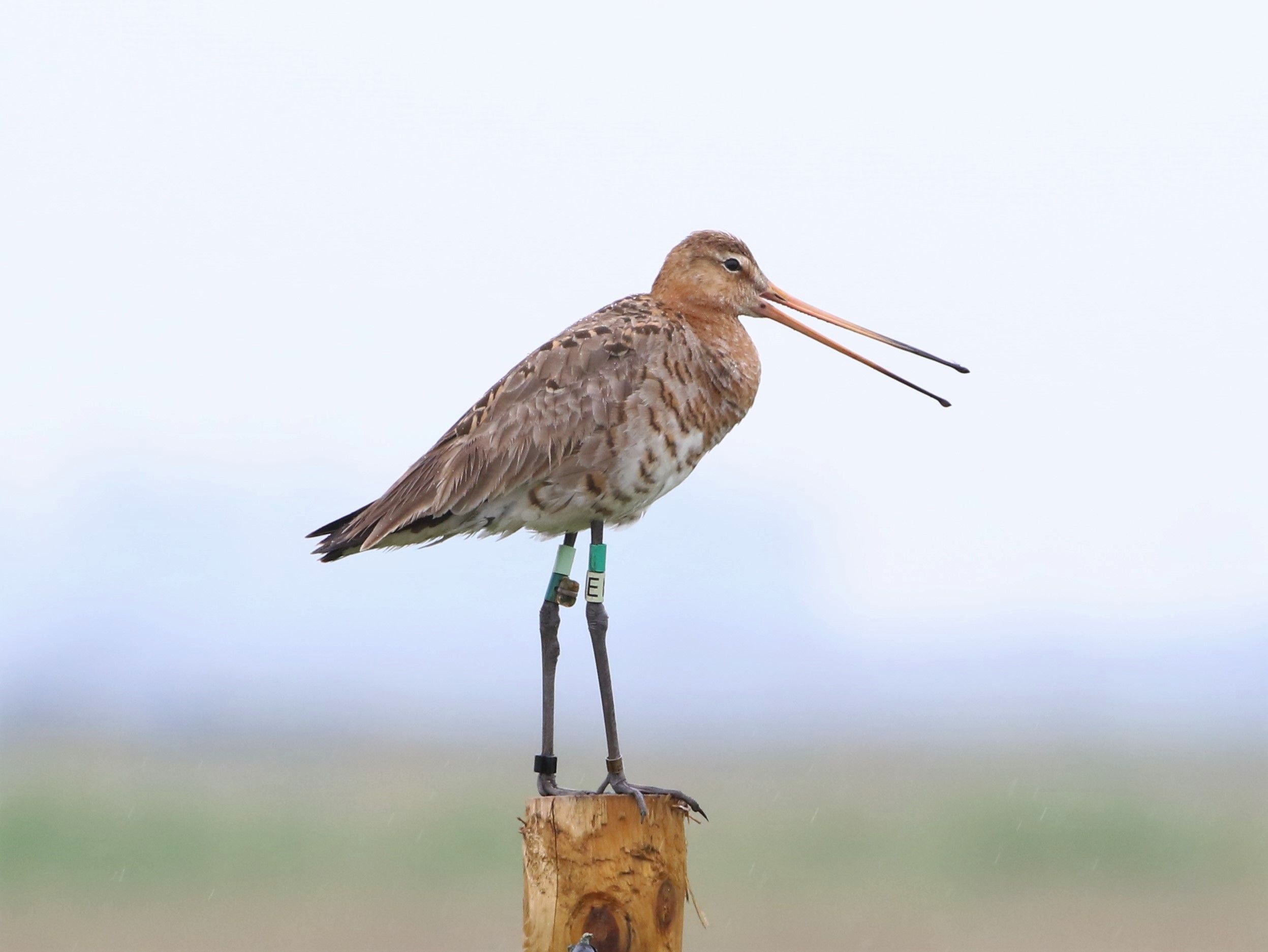
Today (28 June) sees the final release of hand-raised black-tailed godwits as part of an emergency intervention which has thrown the critically endangered wetland bird a lifeline and helped increase its chances of survival.
Data collected by a five year partnership between the RSPB and the Wildfowl & Wetlands Trust (WWT) called Project Godwit, shows the number of new birds added to the population is around five times higher than it would have been without these urgent measures.
The great news is that many of the birds released in previous years have successfully migrated to southern Europe and Africa and then returned to the Fens to breed. Evidence gathered by Project Godwit has shown that over 40% of all breeding pairs now include one or two headstarted birds, and the UK population is 40% larger than it would have been without this vital work.
But conservation experts are warning that all the good work could still be undone leaving a bleak future for the waders unless more of the vital healthy wetland habitat the birds need to survive is created
Project Godwit uses a technique called headstarting – which involves collecting eggs from the wild, under licence from Natural England, and incubating them at a special facility at WWT Welney in Norfolk. After hatching, the chicks are reared in captivity before being released back into the wild when they are past the most vulnerable time in their life and old enough to fly and survive to breed.

Project Godwit was the first time headstarting was used as a technique to boost the population of an endangered UK bird while other methods to save them in the longer term were found. The method is now being trialled on curlews.
With this latest release – the last of the project – over 200 headstarted birds will have been released onto the Ouse and Nene Washes in the Fens, where most of the remaining breeding pairs in the UK are found.
“We’ve worked incredibly hard over the past six years to hatch, carefully nurture, and release so many godwits and the success of this project is testament to the effort put in by people from both organisations involved,” said WWT Project Manager Eric Heath.
But headstarting is just one part of a much wider picture of how we save the future of these much-loved birds, as well as many other ground-nesting waders, and it is clear that one thing we need to do is restore more of the wetland habitat they need to breed and survive over the long term.
It’s really encouraging to see the results of this work, knowing that the numbers are definitely heading in the right direction. However, none of us are feeling complacent and we have a long way to go until we can say the black-tailed godwit is safe.
This is why we are working with farmers, landowners, local communities and others to create bigger, better and more connected wetlands to help the godwits and many other species thrive.”
As well as releasing birds, the project has enhanced habitat, examined the threats the birds face, and trialled other conservation techniques to increase the survival of eggs and chicks. Breeding success in the wild, however, remains too low to support a stable population. The UK’s godwits are struggling like many other wading birds due to loss of habitat, unfavourable land management, unsustainable predation rates and the impacts of climate change.

RSPB Project Manager Rebecca Lee said that the decline in wader species across Europe is a crisis that is worrying scientists, as well as governments and land managers.
“The UK is incredibly important for a wide variety of wading birds,” she said. “As well as hosting important populations of breeding waders, including the black-tailed tailed godwit, we are an internationally important place for many species during winter.
There are huge concerns for our waders at the moment, but also many reasons to be hopeful. We have some very special habitats in the UK that waders need. For breeding godwits, it is wet grasslands – which might not sound particularly exciting – but they are! Wet grasslands support a vast diversity of birds and invertebrates, they play an important role in farming systems and flood prevention and provide an array of other benefits.
Working together with government and local communities we have a real chance to save and restore this important habitat, bringing benefits not just for our birds but for people too.”
Project Godwit is a partnership between the RSPB and WWT with major funding from the EU LIFE Nature Programme, the HSBC 150th Anniversary Fund, Natural England, the Montague-Panton Animal Welfare Trust and the National Lottery Heritage Fund, through the Back from the Brink programme.

ENDS
[registration_form]
If just a tiny percentage of the time, effort, money and resources used to artificially raise the 50,000,000 plus gamebirds released into the UK countryside each year to end up as roadkill, in a fox’s belly or landfill, and perhaps just maybe on a plate was switched to conservation work instead imagine what a difference that would make. Some of that could go to boosting wild populations of struggling species as with the black tailed godwit. The land freed up from not having to provide feed for pheasant and red legged partridge chicks could be turned over to habitat creation as well. Sad that things have got to the stage where this project was needed, but thankfully the people involved were determined and skilled enough to pull it off.